calsfoundation@cals.org
Arkansas Civil Rights Heritage Trail
The Arkansas Civil Rights Heritage Trail is a walking tour in Little Rock (Pulaski County) that commemorates people and places that have played important roles in the state’s journey toward equal rights for all. A part of the United States Civil Rights Trail, the Arkansas trail was created by University of Arkansas at Little Rock’s Anderson Institute on Race and Ethnicity to recognize “the sacrifices and achievements made by those who fought for racial and ethnic justice in Arkansas.” The trail also serves to raise awareness both for tourists and Arkansas residents of the important place of the civil rights legacy in the state’s history, the full extent of which is often overlooked.
The several-blocks-long trail begins just outside the Old State House in downtown Little Rock and is planned to extend all the way to the William J. Clinton Presidential Library and Museum. Since the trail’s inception in 2011, several new markers have been added each year, with the early markers spotlighting those civil rights activists who were involved in the sit-ins and freedom ride efforts of the early 1960s and the desegregation of Little Rock Central High School in the late 1950s, as well as those who broke barriers and helped achieve the desegregation of downtown Little Rock; also commemorated are those whose efforts opened up professional areas like medicine and healthcare, politics and law, and economic advancement.
In 2011, the initial honorees were participants in the sit-in and freedom ride efforts, while in 2012, the central figures in the Central High School desegregation effort were recognized. In 2013, the many people whose efforts had led to the desegregation of downtown Little Rock were honored, while 2014 saw the pioneers who had broken through the colors line in the healthcare field recognized, and 2015 saw their law and politics counterparts getting the nod. In 2017, longtime civil rights activist William “Sonny” Walker, who had died in 2016, was honored, and in 2018, Governor Winthrop Rockefeller was added. The 2019 ceremony shined the spotlight on the victims of the 1919 Elaine Massacre. Along the way, the organizers have sought to educate modern audiences about the often unsung figures who fought for equality in Arkansas. The sponsors of the state trail have worked hard to make it accessible to modern audiences, creating a phone app for visitors to use as they follow the path.
In 2016, the trail won a Diamond Award from the Arkansas Historical Association “for honoring and increasing public awareness of the freedom struggle in Arkansas.”
In 2018, the Arkansas Civil Rights Heritage Trail—along with places it includes: Central High School, the Little Rock Nine Memorial at the Arkansas State Capitol, the Daisy Bates House, the Mosaic Templars Cultural Center, and the Clinton Presidential Library—was named an official part of the United States Civil Rights Trail, the creation of which represented the culmination of an effort spearheaded by the tourism departments of Alabama and Arkansas to formally recognize these important touchstones of American history.
For additional information:
Kirk, John A. “Arkansas Civil Rights Trail.” AY Magazine, January 27, 2023. https://aymag.com/arkansas-civil-rights-trail-2/ (accessed February 28, 2024).
Sandlin, Jack. “New US Civil Rights Trail includes 6 Little Rock locations.” Baxter Bulletin, January 22, 2018, p. 2A.
Schnedler, Marcia. “Following Their Footsteps.” Arkansas Democrat-Gazette, July 14, 2020, pp. 1E, 6E. Online at https://www.arkansasonline.com/news/2020/jul/14/following-their-footsteps/ (accessed March 14, 2024).
United States Civil Rights Trail/Arkansas Civil Rights Trail. https://civilrightstrail.com/attraction/arkansas-civil-rights-heritage-trail/ (accessed February 28, 2024).
William H. Pruden III
Ravenscroft School
 Civil Rights and Social Change
Civil Rights and Social Change Divergent Prosperity and the Arc of Reform, 1968–2022
Divergent Prosperity and the Arc of Reform, 1968–2022 Historic Preservation
Historic Preservation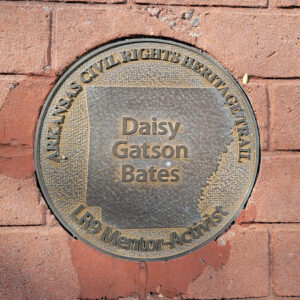 Bates Marker
Bates Marker 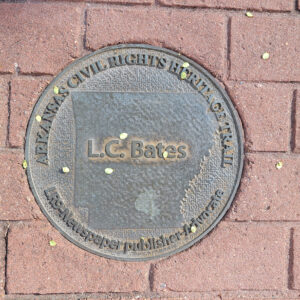 Bates Marker
Bates Marker 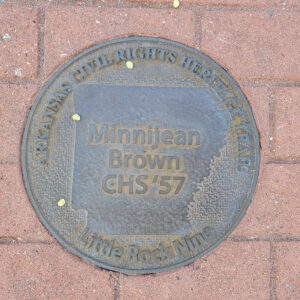 Brown Marker
Brown Marker 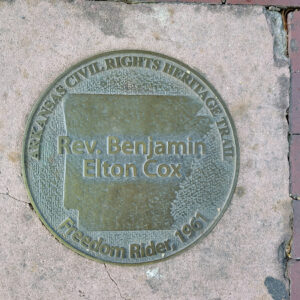 Cox Marker
Cox Marker 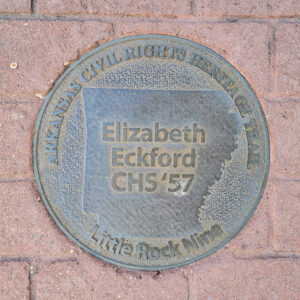 Eckford Marker
Eckford Marker 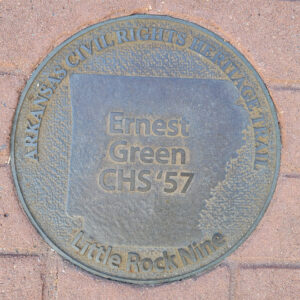 Green Marker
Green Marker 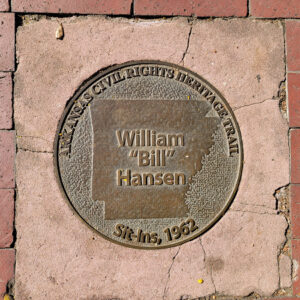 Hansen Marker
Hansen Marker 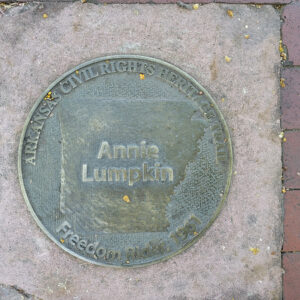 Lumpkin Marker
Lumpkin Marker 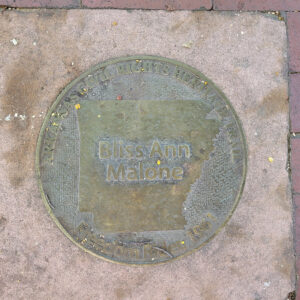 Malone Marker
Malone Marker 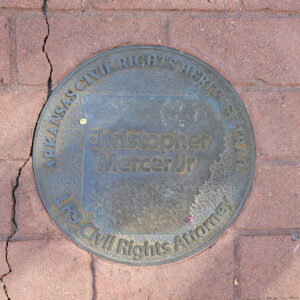 Mercer Marker
Mercer Marker 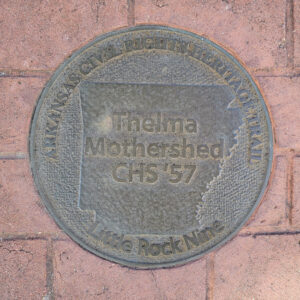 Mothershed Marker
Mothershed Marker  Patillo Marker
Patillo Marker 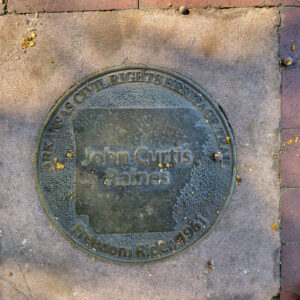 Raines Marker
Raines Marker 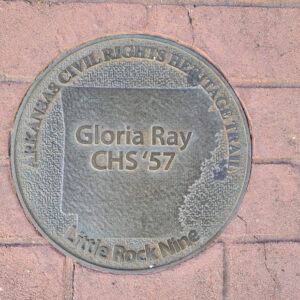 Ray Marker
Ray Marker  Reinitz Marker
Reinitz Marker 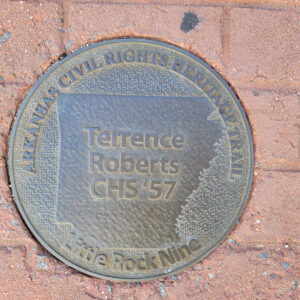 Roberts Marker
Roberts Marker 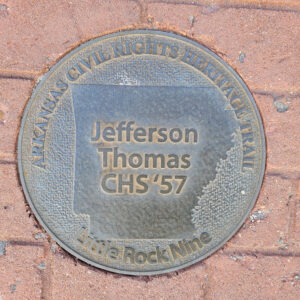 Thomas Marker
Thomas Marker 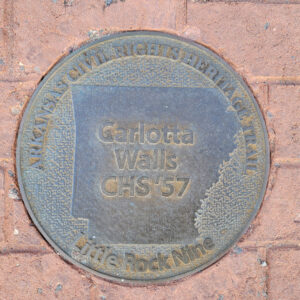 Walls Marker
Walls Marker 




Comments
No comments on this entry yet.